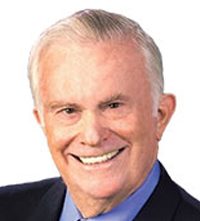OPEC Slashes Output Under Russian Pressure
President Joe Biden responds by opening oil/natural gas reserves.

A cut of 2 million oil barrels per day resulted from Russian-led allies, a move that caused already high prices to rise further. This results from Russian pressure on fellow members of the 23-member group known as OPEC.
While putting the obvious blame on Russian President Vladimir Putin, U.S. President Joe Biden also had to “eat crow” since he was responsible for shutting off oil supplies from Canada and buying into the idiocy of eliminating oil, natural gas and coal.
Realizing that elevated oil prices would add to Democratic negativity in the early November vote for House and Senate, President Biden forced the opening of oil/natural gas reserves, put together over years. Specifically, the presidential directive was 10 million barrels of oil from the U.S.’s Strategic Petroleum Reserve. Biden hoped it would also stymie the Russian war against Ukraine.
OPEC’s delegates said that the budget cut would amount to about 600,000 barrels daily, less than what producers were pumping then.
Such strategies would tend to squeeze only the minimum pressure on Putin’s Russia. It is hoped that the latter’s impact on the “hero of World War II,” Russia, might infuriate the Russian president even more.
What Prompted Early October Stock Market Rally?
As previously indicated in my October column, Federal Reserve Chairman Jerome Powell threw the stock market to the wolves when indicated by a new tray of bonds with higher returns.
While this temporarily caused a downward breakout by the previously aggressive stock market, a new surge in this sector overcame Powell’s disaster despite his phony excuse that higher bond prices would snuff out inflation.
What prompted Powell’s original stock market surge years ago was obvious in its successes. Stirring up the 75-point increases of Federal Reserve bonds had the opposite effect, killing the stock market’s successful growth, for which he was largely responsible. It’s not this writer’s viewpoints that should influence this attempt of action for such a dramatic change.
While this highly successful generation of an upward surge of the then transparent stock market growth, it did not make sense that action was taken to reverse previous success in increasing 75-point public bonds three times to make this sector more dynamic than “inflating” stock markets.
The subsequent stock market recovery will result, I hope, in the overall success for which the chairman was responsible.
UK Pound Hits Record Low Vs. USD
Untimely for King Charles III’s takeover from his blessed mother, the once-dominant British pound hit its record low ever versus the American dollar.
Although the British king made it clear that royalty is not involved in politics, this depression of the pound can’t help but put an untimely shadow on this once world-leading currency. This also matched the United Kingdom selling off some government properties it held for centuries throughout the world.
The UK’s government borrowers’ costs also increased as investors bet that the Bank of England would need to raise interest rates rapidly to fight inflation — and draw investors back into the pound.
This was a challenge for former Prime Minister Liz Truss, whose followers took a sharp U-turn with the previous conservative governments by unveiling tax cuts rather than worrying about financial stability. Truss faced a vicious cycle left by her predecessor to raise taxes to overcome the financial “miscreant” it now faces.
She resigned after only 50 days in
office; Rishi Sunak took over the post Oct. 25.
As of Nov. 1, the British Central Bank began to sell some of the $1.01 trillion of government bonds acquired from 2009 to 2021, as it had planned.
With the pomp and circumstances of the world noting the burial of Queen Elizabeth II, it has been forgotten that the worldwide circumstance of political reality must be faced in the immediate future and its impacts.





